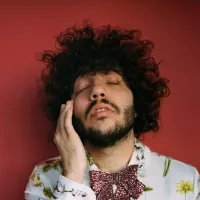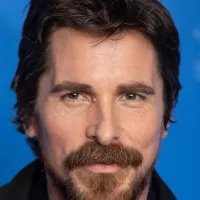Oman, officially the Sultanate of Oman, is situated on the southeastern coast of the Arabian Peninsula in West Asia and the Middle East. It shares borders with Saudi Arabia, the United Arab Emirates, and Yemen, with coastlines along the Arabian Sea and the Gulf of Oman. Noteworthy features include the exclaves of Madha and Musandam. Muscat serves as the capital and largest city. The nation has a population of about 5.46 million and covers an area of 309,500 km2.
1913: Imam Salim Alkharusi instigates rebellion
In 1913, Imam Salim Alkharusi instigated an anti-Muscat rebellion which lasted until 1920.
1920: Treaty of Seeb signed
In 1920, the Sultanate of Muscat and the Imamate of Oman established peace by signing the Treaty of Seeb, brokered by Britain. Also, in 1920, Imam Salim Alkharusi died and Muhammad Alkhalili was elected.
January 1923: Agreement signed between Sultanate and British government
In January 1923, an agreement between the Sultanate of Oman and the British government was signed requiring the Sultanate to consult with the British political agent and obtain approval from the High Government of India for oil extraction.
July 1928: Red Line Agreement signed
On July 31, 1928, the Red Line Agreement was signed between several oil companies to collectively produce oil in the post-Ottoman Empire region, including the Arabian peninsula.
1929: Iraq Petroleum Company (IPC) established
In 1929, the members of the Red Line Agreement established the Iraq Petroleum Company (IPC).
November 1931: Sultan Taimur bin Faisal abdicates
On November 13, 1931, Sultan Taimur bin Faisal abdicated.
February 1932: Said bin Taimur becomes Sultan
On February 10, 1932, Said bin Taimur officially became the Sultan of Muscat.
1937: Agreement between Sultan and Iraq Petroleum Company (IPC) signed
In 1937, an agreement between Sultan Said and Iraq Petroleum Company (IPC) was signed granting oil concessions to IPC.
September 10, 1939: Oman declares war on Germany
On September 10, 1939, the sultan of Oman declared war on Germany upon the outbreak of World War II.
October 16, 1943: German U-Boat U-533 sunk in Gulf of Oman
On October 16, 1943, the German U-Boat U-533 was sunk in the Gulf of Oman by a Bristol Blenheim from No. 244 Squadron RAF. 52 crew members died, with one survivor taken as a prisoner of war. The wreck is now a popular diving site.
1946: British government offers support to Sultan
In 1946, the British government offered arms, ammunition, auxiliary supplies and officers to Sultan Said bin Taimur to prepare to attack the interior of Oman.
December 1951: Treaty of Friendship, Commerce and Navigation signed
In December 1951, the Treaty of Friendship, Commerce and Navigation between Oman and the United Kingdom recognized the Sultanate of Muscat and Oman as a fully independent state.
May 1954: Death of Imam Alkhalili and election of Ghalib Alhinai
In May 1954, Imam Alkhalili died and Ghalib Alhinai was elected Imam.
December 1955: Sultan occupies main centers in Oman
In December 1955, Sultan Said bin Taimur sent troops of the Muscat and Oman Field Force to occupy main centers in Oman, including Nizwa and Ibri.
1955: Makran strip accedes to Pakistan
In 1955, the exclave coastal Makran strip acceded to Pakistan and was made a district of its Balochistan province, while Gwadar remained in Oman.
July 1957: Sultan suppresses rebellion with British intervention
In July 1957, Sultan Said, with the intervention of British infantry, armored car detachments from the British Army and RAF aircraft, was able to suppress a rebellion after his forces were withdrawing and sustaining heavy casualties. The Imamate's forces retreated to the inaccessible Jebel Akhdar.
August 1957: Approval for British air strikes
On 4 August 1957, the British Foreign Secretary gave the approval to carry out air strikes without prior warning to the locals residing in the interior of Oman.
September 1958: Pakistan purchased the Gwadar enclave from Oman
In September 1958, Pakistan purchased the Gwadar enclave from Oman for US$3 million.
December 1958: British RAF raids in Oman
Between July and December 1958, the British RAF made 1,635 raids in Oman, targeting insurgents, mountain top villages, water channels and crops.
January 1959: Sultanate's forces occupy the mountain
On 27 January 1959, the Sultanate's forces occupied the mountain in a surprise operation. Imam Ghalib, his brother Talib and Sulaiman managed to escape to Saudi Arabia.
December 1963: UN General Assembly establishes Ad-Hoc Committee on Oman
On 11 December 1963, the UN General Assembly decided to establish an Ad-Hoc Committee on Oman to study the 'Question of Oman'.
1963: Start of Dhofar War
In 1963, the Dhofar War began, pitting pro-Soviet forces against government troops.
1965: UN General Assembly adopts resolution on Oman
In 1965, the UN General Assembly adopted the 'Question of Oman' resolution, calling for an end to repressive action and British control, reaffirming the right to self-determination.
1966: UN General Assembly adopts resolution on Oman
In 1966, the UN General Assembly adopted the 'Question of Oman' resolution, calling for an end to repressive action and British control, reaffirming the right to self-determination.
1967: UN General Assembly adopts resolution on Oman
In 1967, the UN General Assembly adopted the 'Question of Oman' resolution, calling for an end to repressive action and British control, reaffirming the right to self-determination.
1969: Madha boundary settled
In 1969, the boundary of Madha, an Omani exclave within UAE territory, was settled.
July 1970: Oman Radio Begins Broadcasting
On 30 July 1970, Oman Radio, the first and only state-owned radio channel, began broadcasting.
1970: Sultan Qaboos opens up the country
After deposing his father in 1970, Sultan Qaboos opened up the country, removed "Muscat and" from the country's name, and outlawed slavery.
1970: Qaboos bin Said becomes Sultan
In 1970, Qaboos bin Said became the Sultan of Oman.
1970: Deposition of Sultan Said bin Taimur
In 1970, Sultan Said bin Taimur was deposed in a bloodless coup by his son Qaboos bin Said, with British support.
1970: Oman pursues moderate foreign policy
Since 1970, Oman has pursued a moderate foreign policy and expanded its diplomatic relations.
1970: Legislation promulgated through royal decrees
Since 1970, all legislation in Oman, including the 1996 Basic Law, has been promulgated through royal decrees.
1971: Oman joins United Nations
In 1971, Oman joined the United Nations.
1976: End of Dhofar War
In 1976, the Dhofar War was put down with the help of forces from Jordan, Saudi Arabia, Iran, Pakistan and Britain.
1979: Oil output doubled
Following the 1970s energy crisis, Oman doubled their oil output between 1979 and 1985.
1981: Oman became a founding member of the Gulf Cooperation Council
In 1981, Oman became a founding member of the six-nation Gulf Cooperation Council.
1984: Oman Centre for Traditional Music established
In 1984, the Oman Centre for Traditional Music was established to preserve traditional Omani songs and dances.
1985: Oil output doubled
Following the 1970s energy crisis, Oman doubled their oil output between 1979 and 1985.
1985: Royal Oman Symphony Orchestra founded
In 1985, Sultan Qaboos founded the Royal Oman Symphony Orchestra.
July 1987: Royal Oman Symphony Orchestra inaugural concert
On July 1, 1987, the Royal Oman Symphony Orchestra gave its inaugural concert at the Al Bustan Palace Hotel's Oman Auditorium.
1990: Road incident death rates decreasing
Since 1990, Oman's road incident death rates have been decreasing.
1993: Access to healthcare services
In 1993, 89 percent of the population of Oman had access to health care services.
1993: Establishment of The Omani Society for Fine Arts
In 1993, the Omani Society for Fine Arts was established to offer educational programs, workshops, and artist grants.
1995: Oman adopts present national flag
In 1995, Oman adopted its present national flag, resembling the previous flag but with a thicker stripe.
1995: Oman had a 2020 Vision
Oman had a 2020 Vision to diversify the economy established in 1995, which targeted a decrease in oil's share to less than 10 percent of GDP by 2020, but it was rendered obsolete in 2011.
1995: High percentage of children receiving key vaccines
Since 1995, the percentage of Omani children who receive key vaccines has consistently been very high (above 99 percent).
1996: Basic Statute of the State issued
In 1996, the Basic Statute of the State, operating as Oman's constitution, was issued.
1996: Basic Law promulgated
Since 1970, all legislation in Oman, including the 1996 Basic Law, has been promulgated through royal decrees.
1997: Women granted right to vote
In 1997, women in Oman were granted the right to vote and stand for election to the Majlis al-Shura.
1998: Bait Al Zubair Museum Opens
In 1998, Bait Al Zubair Museum, a private, family-funded museum, opened its doors to the public.
1998: Plans to diversify its economy
Since a slump in oil prices in 1998, Oman has made active plans to diversify its economy and is placing a greater emphasis on other areas of industry, namely tourism and infrastructure.
1999: Bait Al Zubair Museum Receives Award
In 1999, Bait Al Zubair Museum received Sultan Qaboos' Award for Architectural Excellence.
2000: Access to healthcare services and health system ranking
In 2000, 99 percent of Oman's population had access to health care services. In 2000, Oman's health system was ranked number 8 by the WHO.
2000: Bait Muzna Gallery Established
In 2000, Bait Muzna Gallery was established by Sayyida Susan Al Said.
2000: Oil production at 972,000 barrels per day
In 2000, Oman's oil production was at 972,000 barrels per day.
2000: Fish exports at US$144 million
In 2000, fish exports from Oman were at US$144 million.
2000: Royal Navy of Oman personnel
In 2000, the Royal Navy of Oman had 4,200 men and was headquartered at Seeb.
2001: Endangered species in Oman
In 2001, Oman had nine endangered species of mammals, five endangered types of birds, and nineteen threatened plant species.
2002: Voting rights extended to all citizens
In 2002, voting rights in Oman were extended to all citizens over the age of 21.
2003: Olympic Days
In 2003, the Oman Olympic Committee played a major part in organising the highly successful Olympic Days.
2003: First elections under new rules
In 2003, the first elections to the Consultative Assembly under the new rules were held in Oman.
2003: Undernourished population
Since 2003, Oman's undernourished share of the population has dropped.
October 2004: Ministry of Sports Affairs Set Up
In October 2004, the Omani government set up a Ministry of Sports Affairs to replace the General Organisation for Youth, Sports and Cultural Affairs.
2004: Oman appoints first female minister
In 2004, the Sultan appointed Oman's first female minister with portfolio, Sheikha Aisha bint Khalfan bin Jameel al-Sayabiyah, to the post of National Authority for Industrial Craftsmanship.
2005: Arrests and convictions of Islamists
Nearly 100 suspected Islamists were arrested in Oman in 2005 and 31 people were convicted of trying to overthrow the government, but they were ultimately pardoned in June of the same year.
2006: Steady date exports
Between 2006 and 2016, Oman's date exports remained steady.
2006: Ratio of exported fish to total fish captured
Between 2006 and 2016, the ratio of exported fish to total fish captured in tons fluctuated between 49 and 61 percent.
2006: Oman had ten surface combat vessels
In 2006, Oman had ten surface combat vessels. These included two 1,450-ton Qahir class corvettes, and eight ocean-going patrol boats. The Omani Navy had one 2,500-ton Nasr al Bahr class LSL with a helicopter deck.
2006: Oman's military manpower totalled 44,100
In 2006, Oman's military manpower totalled 44,100, including army, navy, and air force personnel.
2006: Al-Boom film released
In 2006, the Omani film Al-Boom was released.
2006: Royal Army of Oman personnel
In 2006, the Royal Army of Oman had 25,000 active personnel plus a small contingent of Royal Household troops.
2007: Only one Omani film
As of 2007, Al-Boom (2006) was the only Omani film.
2007: Oman ordered Khareef class corvettes
In 2007, Oman ordered three Khareef class corvettes from the VT Group for £400 million. They were built at Portsmouth.
2007: Oil production falls to 714,800 barrels per day
In 2007, Oman's oil production fell to 714,800 barrels per day, marking a decline of over 26% since 2000.
2007: Arabian Oryx Sanctuary area reduced
In 2007, the government decided to reduce the area of the Arabian Oryx Sanctuary by 90%, leading to its deletion from UNESCO's World Heritage List.
April 2008: Oman stop for Middle East's torch relay
On 14 April 2008, before the Beijing Olympics, Oman became the stop of the Middle East's torch relay, covering 20 kilometres.
2008: Natural gas production at 24 billion cubic metres
In 2008, Oman's natural gas production was approximately 24 billion cubic metres per year.
January 2009: Oman Wins Arabian Gulf Cup
From 4 to 17 January 2009, the 19th Arabian Gulf Cup took place in Muscat, and was won by the Omani national football team.
January 2009: Majan TV Begins Broadcasting
In January 2009, Majan TV, the first private TV channel in Oman, began broadcasting.
January 2009: Free-trade agreement with the United States took effect
In January 2009, a free-trade agreement between Oman and the United States took effect, eliminating tariff barriers and providing protections for foreign businesses.
2009: Oil production recovers to 816,000 barrels per day
In 2009, Oman's oil production recovered to 816,000 barrels per day.
2009: Tourism revenues at RO 505 million
In 2009, tourism revenues in Oman were RO 505 million (US$1.3 billion).
2010: Muscat Hosts Asian Beach Games
In 2010, Muscat hosted the 2010 Asian Beach Games.
2010: Oman spent US$4.074 billion on military expenditures
In 2010, Oman spent US$4.074 billion on military expenditures, which was 8.5% of the gross domestic product.
2010: Life expectancy
In 2010, life expectancy at birth in Oman was estimated to be 76.1 years. As of 2010, there were an estimated 2.1 physicians and 2.1 hospital beds per 1,000 people.
2010: Oman recognized as most improved country
In 2010, the United Nations Development Programme recognized Oman as the most improved country in the world in terms of development during the preceding 40 years.
2010: Adult literacy rate at 86.9 percent
In 2010, the adult literacy rate in Oman was 86.9 percent.
2010: Majan TV Website Update
In early 2010, Majan TV's official channel website was last updated.
February 2011: Protests dispersed by riot police
Inspired by the Arab Spring, protests occurred in Oman during February 2011, demanding political reforms and improved living conditions. They were dispersed by riot police.
October 2011: Elections held to Consultative Assembly
In October 2011, elections were held to the Consultative Assembly in Oman, to which Sultan Qaboos promised greater powers.
2011: Low percentage of Omanis employed in construction and manufacturing
As of 2011 statistics, the percentage of Omanis employed in the construction and manufacturing sectors is low.
2011: R&D spending average
Between 2011 and 2015, Oman's share of research & development expenditures to GDP was on average 0.20 percent.
2011: Oman Hosts Asian FIFA Beach Soccer World Cup Qualifiers
In 2011, Oman hosted the Asian FIFA Beach Soccer World Cup qualifiers.
2011: Discovery of stone tools at Aybut Al Auwal
In 2011, a site at Aybut Al Auwal in Oman was discovered containing stone tools belonging to the late Nubian Complex, dating back approximately 106,000 years.
2011: Basic Statute amended in response to protests
In 2011, the Basic Statute was amended in response to protests.
2011: Oman considered safe for Filipino migrants
In 2011, the Philippines government determined that Oman was one of the only countries in the Middle East considered safe for Filipino migrants, but migrant workers remained insufficiently protected against exploitation.
2011: 2020 Vision obsolete
Oman had a 2020 Vision to diversify the economy established in 1995, which targeted a decrease in oil's share to less than 10 percent of GDP by 2020, but it was rendered obsolete in 2011.
September 2012: Trials of activists begin
In September 2012, trials began of 'activists' in Oman accused of posting "abusive and provocative" criticism of the government online, with six receiving jail terms.
2012: Oman was the 23rd largest arms importer
According to SIPRI, Oman was the 23rd largest arms importer from 2012 to 2016.
2012: Muscat named second best city to visit
In 2012, Muscat, the capital of Oman, was named the second best city to visit in the world by Lonely Planet.
2012: Oil production at 930,000 barrels per day
In 2012, Oman's oil production reached 930,000 barrels per day.
2012: Reports of torture and inhumane punishment
In 2012, there were numerous reports of torture and inhumane forms of punishment perpetrated by Omani security forces on protesters and detainees, including sleep deprivation, extreme temperatures and solitary confinement.
2012: Oman Hosts Beach Handball World Championships
Oman hosted the Men's and Women's 2012 Beach Handball World Championships at the Millennium Resort in Mussanah, from 8 to 13 July.
2013: Oman achieves malaria elimination status
In 2013, Oman was declared free of malaria diagnoses by the World Health Organization (WHO).
March 2014: El Clasico Played in Oman
On 14 March 2014, the first "El Clasico" to be played outside of Spain, was played at the Sultan Qaboos Sports Complex.
2014: UNCTAD report on higher education
According to the United Nations Conference on Trade and Development 2014 report, accreditation standards and mechanisms with a quality control that focuses on input assessments, rather than output, are areas of improvement in Oman.
2014: Traditional dress customs
As of 2014, women in Oman reserve wearing their traditional dress for special occasions, and instead wear a loose black cloak called an abaya over their personal choice of clothing. The Sultan has forbidden the covering of faces in public office.
November 2015: Music video goes viral
In November 2015, a seven-minute music video about Oman went viral, achieving 500,000 views on YouTube within 10 days of being released.
2015: R&D spending average
Between 2011 and 2015, Oman's share of research & development expenditures to GDP was on average 0.20 percent.
2015: Health spending to GDP average
Between 2015 and 2016, Oman's health spending to GDP averaged 4.3 percent.
2015: Coverage of essential health services
In 2015, Oman's coverage of essential health services was 77 percent.
2015: Oman's health spending to GDP
Oman's health spending to GDP between 2015 and 2016 averaged 4.3 percent, while the world's average during the same period was 10 percent.
July 2016: National Museum of Oman Opens
On 30 July 2016, the National Museum of Oman opened with 14 permanent galleries.
2016: Oman was the 23rd largest arms importer
According to SIPRI, Oman was the 23rd largest arms importer from 2012 to 2016.
2016: Mortality due to air pollution
As of 2016, Oman's mortality rate due to air pollution (household and ambient air pollution) was 53.9 per 100,000 population.
2016: Health spending to GDP average
Between 2015 and 2016, Oman's health spending to GDP averaged 4.3 percent.
2016: Bait Muzna Opens Second Space in Salalah
In 2016, Bait Muzna opened a second space in Salalah to branch out and support art film and the digital art scene.
2016: Journalists sentenced to prison
In 2016, Human Rights Watch reported that an Omani court sentenced three journalists to prison and ordered the permanent closure of their newspaper, over an article that alleged corruption in the judiciary.
2016: Oman Qualifies for ICC World Twenty20
In 2016, Oman qualified for the ICC World Twenty20.
2016: Date production at 350,000 tons
In 2016, Oman's estimated production of dates was 350,000 tons, making it the 9th largest producer of dates. Oman's date exports were US$12.6 million, and imports were US$11.3 million.
2016: Fishing industry contributes 0.78 percent to GDP
In 2016, Oman's fishing industry contributed 0.78 percent to the GDP. Fish exports in 2016 were US$172 million. The main importer of Omani fish was Vietnam.
2016: Manufacturing value added to GDP at 8.4 percent
In 2016, Oman's manufacturing value added to GDP rate was 8.4 percent, lower than the Arab world's average of 9.8 percent and the world average of 15.6 percent.
2016: Patent applications ratio
In 2016, Oman's ratio of patent applications per million people was 0.35.
2016: Undernourished share of population
In 2016, Oman's undernourished share of the population was 5.4 percent.
2016: Oil and gas represented 72 percent of the government's revenues
In 2016, oil and gas represented 72 percent of the government's revenues.
2016: Government Suspends Azamn and Arrests Journalists
In 2016, the government drew international criticism for suspending the newspaper Azamn and arresting three journalists after a report on corruption in the country's judiciary.
2016: Tourism contributes 2.8 percent to Omani GDP
In 2016, tourism contributed 2.8 percent to the Omani GDP.
2016: Oman's military spending to GDP
Oman's military spending to GDP between 2016 and 2018 averaged 10 percent, while the world's average during the same period was 2.2 percent.
2016: Oman's military spending as percentage of GDP
Oman's on-average military spending as a percentage of GDP between 2016 and 2018 was around 10 percent.
December 2017: Oman Wins 23rd Arabian Gulf Cup
From 22 December 2017 until 5 January 2018, the 23rd Arabian Gulf Cup took place in Kuwait, with Oman winning their second title, defeating the United Arab Emirates in the final.
2017: Azamn Not Allowed to Reopen
In 2017, Azamn was not allowed to reopen, although an appeal court ruled in late 2016 that the paper could resume operating.
2017: Road incident death rate
In 2017, Oman's road incident death rate was 47.1 per 100,000 individuals.
2017: Total FDI exceeded US$24 billion
In 2017, Oman's total foreign direct investment (FDI) exceeded US$24 billion, with the oil and gas sector receiving the highest share.
2017: Oil and gas sector represented 30.1 percent of the nominal GDP
In 2017, the oil and gas sector represented 30.1 percent of the nominal GDP.
2017: Tourism revenues at RO 719 million
In 2017, tourism revenues in Oman grew to RO 719 million (US$1.8 billion).
2017: Oman's research and development spending
Oman's research and development spending between 2016 and 2017 averaged 0.24 percent, which is significantly lower than the world's average (2.2 percent) during the same period.
January 2018: Oman Wins 23rd Arabian Gulf Cup
From 22 December 2017 until 5 January 2018, the 23rd Arabian Gulf Cup took place in Kuwait, with Oman winning their second title, defeating the United Arab Emirates in the final.
June 2018: Highest minimum temperature recorded in Qurayyat
In June 2018, Qurayyat set a record for the highest minimum temperature in a 24-hour period, reaching 42.6 °C (108.7 °F).
2018: Oman had a budget deficit of 32 percent
In 2018, Oman had a budget deficit of 32 percent of total revenue and a government debt-to-GDP ratio of 47.5 percent.
2018: World Press Freedom Index Ranking
In 2018, Reporters Without Borders ranked Oman 127th out of 180 countries on its World Press Freedom Index.
2018: Mineral fuels accounted for 82.2 percent of total product exports
In 2018, mineral fuels accounted for 82.2 percent of total product exports from Oman.
2018: Oil and gas represented 71 percent of the government's revenues
In 2018, oil and gas represented 71 percent of the government's revenues in Oman.
2018: New Private Radio Station Launched
In early 2018, Muscat Media Group (MMG) launched a new private radio station.
2018: Oman Competes in AVC Beach Volleyball Continental Cup
Oman featured a men's national team in beach volleyball that competed at the 2018–2020 AVC Beach Volleyball Continental Cup.
2018: Oman's military spending as percentage of GDP
Oman's on-average military spending as a percentage of GDP between 2016 and 2018 was around 10 percent.
2018: Transformation Index BTI report on education
The Transformation Index BTI 2018 report on Oman recommends that the education curriculum should focus more on the "promotion of personal initiative and critical perspective".
September 2019: Oman to host IGRC 2020
In September 2019, Oman was confirmed as the first Middle Eastern country to host the International Gas Union Research Conference (IGRC 2020).
November 2019: E-visa system introduced
In November 2019, Oman introduced the concept of e-visa for tourists from all nationalities, making visa on arrival an exception.
2019: Oman scores below expectations in innovation
According to the Global Innovation Index (2019) report, Oman scores "below expectations" in innovation relative to countries classified under high income. In 2019, Oman ranked 80 out of 129 countries in innovation index.
2019: Climate action challenges remain
According to the United Nations Sustainable Development 2019 index, Oman faces major climate action challenges, including high CO2 emissions from energy and fossil fuel exports.
2019: High scores in education
As of 2019, Oman scored high on the percentage of students who complete lower secondary school and on the literacy rate between the ages of 15 and 24. However, the net primary school enrollment rate is rated as "challenges remain".
2019: Significant challenges in innovation and infrastructure
As of 2019, Oman still faces "significant challenges" in innovation and infrastructure, according to the United Nations Sustainable Development Goals index. Oman scored high on internet use, mobile broadband subscriptions, logistics performance and university rankings but low on scientific and technical publications and R&D spending.
2019: Oman ranked least polluted country in Arab world
In 2019, the WHO ranked Oman as the least polluted country in the Arab world, with a score of 37.7 in the pollution index.
2019: Global Innovation Index ranking
Oman was ranked 80th in the Global Innovation Index in 2019.
January 10, 2020: Death of Sultan Qaboos bin Said
On January 10, 2020, Qaboos bin Said, the Sultan of Oman since 1970, died. He named his cousin, Haitham bin Tariq, as his successor in a letter, who was then confirmed as the new Sultan of Oman.
January 2020: Death of Sultan Qaboos
In January 2020, Sultan Qaboos, Oman's longest-serving ruler, passed away and was succeeded by his cousin Haitham bin Tariq.
February 2020: IGRC 2020 to be held in Oman
In February 2020, the 16th International Gas Union Research Conference (IGRC 2020) was held in Oman, in collaboration with Oman LNG.
2020: Oman's population exceeds 4.5 million
By 2020, Oman's population exceeded 4.5 million.
2020: Highest Military expenditure rate
In 2020, SIPRI estimated Oman's military and security expenditure as a percentage of GDP was 11 percent, making it the world's highest rate in that year.
2020: Oman Competes in AVC Beach Volleyball Continental Cup
Oman featured a men's national team in beach volleyball that competed at the 2018–2020 AVC Beach Volleyball Continental Cup.
2020: Oman had a 2020 Vision
Oman had a 2020 Vision to diversify the economy established in 1995, which targeted a decrease in oil's share to less than 10 percent of GDP by 2020, but it was rendered obsolete in 2011.
2020: Global Innovation Index ranking
Oman was ranked 84th in the Global Innovation Index in 2020, down from 80th in 2019.
January 2021: Theyazin bin Haitham named Crown Prince
In January 2021, Haitham bin Tariq appointed his son, Theyazin bin Haitham, as the first crown prince of Oman, amending the Basic Statute to create the position.
June 2021: Oman to Co-Host ICC Men's T20 World Cup
On 25 June 2021, it was confirmed that Oman would co-host the 2021 edition of the ICC Men's T20 World Cup alongside the United Arab Emirates.
2021: Refinery and petrochemical plant in Duqm completion projected
By 2021, a refinery and petrochemical plant in Duqm with a capacity of 230,000 barrels per day is projected for completion.
2021: Basic Statute amended to create Crown Prince position
In 2021, the Basic Statute was amended to create the position of Crown Prince of Oman.
April 2023: Law changed to allow Omanis to marry foreigners without permission
In April 2023, Oman changed the law by royal decree, allowing Omani citizens to marry foreigners without requiring government permission.
October 2023: Last elections held
The last elections for the Consultative Assembly were held in October 2023.
2024: Oman ranks as 37th most peaceful country
As of 2024, Oman ranks as the 37th most peaceful country in the world according to the Global Peace Index.
2024: Oman Participates in Touch Rugby World Cup
In 2024, Oman participated in the 2024 Touch Rugby World Cup in Nottingham, which was its first participation in an international rugby tournament.
2024: Oman ranked 74th in the Global Innovation Index
In 2024, Oman was ranked 74th in the Global Innovation Index.
October 2027: Next elections due
The next elections for the Consultative Assembly are due in October 2027.
2030: UNSDG targets zero hunger
The UNSDG targets zero hunger by 2030.
2040: Oman then established 2040 Vision
Oman then established 2040 Vision.
Mentioned in this timeline
Qatar is a country located on the Qatar Peninsula in...
Saudi Arabia officially the Kingdom of Saudi Arabia KSA is...
India officially the Republic of India is a South Asian...
Africa is the second-largest and second-most populous continent comprising of...
Iraq officially the Republic of Iraq is a West Asian...

Football is a family of team sports primarily involving kicking...
Trending

13 minutes ago Selena Gomez Defends Benny Blanco Amid Dirty Feet Frenzy and Divorce Comments.

14 minutes ago Blackpink Announces New Album 'DEADLINE' and Teases New Era.

14 minutes ago Christian Bale transforms for 'The Bride,' calls character 'old-fashioned,' praises Gyllenhaal's script.
15 minutes ago Jaden McDaniels' rise with Timberwolves foreseen by Crawford; joins Leonard's exclusive group.

1 hour ago Kris Dunn Shines: Steals the Show with Impressive Defensive Performance for Clippers

1 hour ago Queta's Hilarious Clip Evokes Mazzulla Memories: A Lighthearted NBA Moment
Popular

Jesse Jackson is an American civil rights activist politician and...

Susan Rice is an American diplomat and public official prominent...

Barack Obama the th U S President - was the...

XXXTentacion born Jahseh Dwayne Ricardo Onfroy was a controversial yet...

Michael Joseph Jackson the King of Pop was a highly...

Kashyap Pramod Patel is an American lawyer who became the...